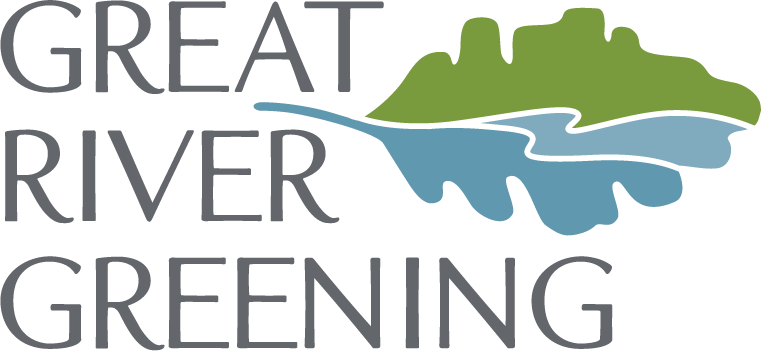How To: Milkweed Seed Collection
By: Becca Tucker, Program Manager
Milkweed is critical to protecting – and growing – our monarch butterfly population. Many butterflies need a single kind of plant for their caterpillars to feed on. For the monarch butterfly, that plant is milkweed whose leaves are the only food source that supports their growing caterpillars.
Unfortunately, milkweed is rapidly disappearing due to habitat loss and degradation. This is where YOU can make a difference.
Join the milkweed seed drive to help support Minnesota’s monarchs.
Project Summary:
Volunteers will independently collect milkweed seed pods and drop the seed off for Great River Greening's use. Our goal is to collect 8+ pounds of milkweed seed -- that means we will need 2,300-2,500 pods worth of seed by the end of 2022. All the collected seed will be distributed at restoration projects associated with the National Fish and Wildlife Foundation Monarch Butterfly and Pollinators Conservation Fund to bolster the amount of milkweed available to monarchs.
Due to the recent drought, many plants are experiencing an 'early fall', so this is a great time to start scouting for seed pods forming on milkweed plants. The pods are ready to collect when they began turning a dry golden color and start to split open. This will likely start to happen mid-to-late August and continue throughout the fall.
Steps for Collecting:
Please obtain permission to collect milkweed from the owner of the property or the manager of the roadway. Do not over-collect in one area, pick no more than 33% of one plant and no more than 33% from each site. This ensures that you get a genetic diversity, and you leave seed for wildlife and self-sowing. Safety Note: Take care, milkweed sap can harm eyes. Do not collect near busy highways.
Easy Collection Steps:
1. Collect clean mature pods (as they begin to split) from any wild growing species of native milkweed (Asclepias sp.), most likely Common Milkweed, Asclepias syriaca.
2. For each location, make a new labeled bag. Each species needs its own bag. Please use paper bags.
3. Attach a label for each bag with species type, date collected, and city of origin.
4. Please dry the pods. If you can, please clean the fluff off the seeds, and pull or shake seeds off (please do not burn the fluff).
Please Email: volunteer@greatrivergreening.org for seed drop-off at Great River Greening’s Saint Paul office or a volunteer event.
This project is supported through funding from the National Fish and Wildlife Foundation – Monarch Butterfly and Pollinators Conservation. Materials for this guide were provided by the Xerces Society as well as Monarch Joint Venture. More information on milkweed species and pollinator conservation can be found here –


